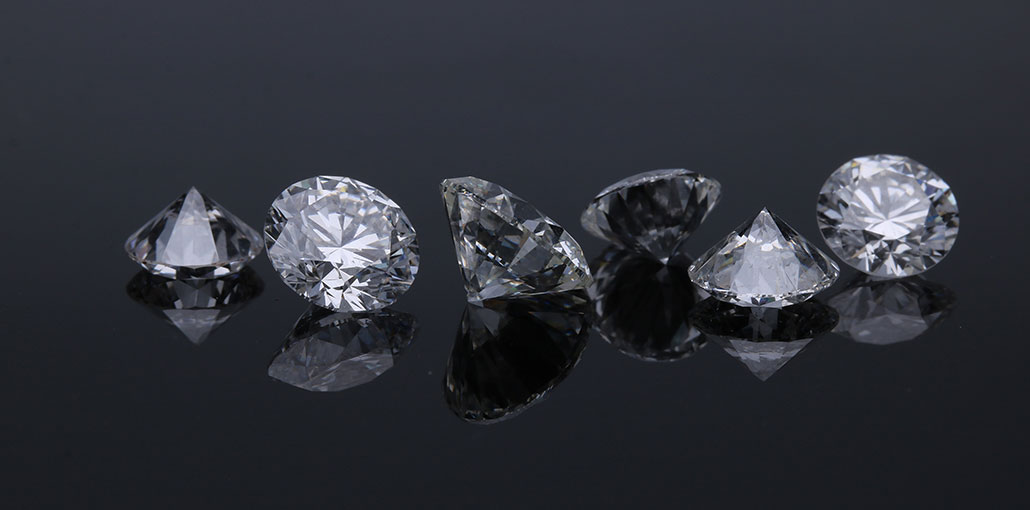Dubai, known for its lavish lifestyle and remarkable architectural wonders, is also emerging as a leader in promoting sustainable practices in the diamond industry. As concerns regarding the ethical sourcing of diamonds continue to grow, Dubai’s jewelry sector has taken significant strides to ensure that the diamonds adorning their exquisite creations are not only dazzling but also ethically sourced.
In this article, we will delve into Dubai’s sustainable diamond industry, exploring the initiatives undertaken to promote responsible sourcing, transparency, and environmental consciousness.
Ethical Sourcing and Responsible Mining:
The diamond jewelers commitment to ethical diamond sourcing begins with responsible mining practices. The city emphasizes the importance of supporting mining operations that adhere to stringent social and environmental standards. Through partnerships with reputable mining companies, Dubai ensures that the diamonds entering its market are sourced in a manner that respects human rights, promotes fair labor practices, and minimizes environmental impact. By encouraging responsible mining, Dubai’s sustainable diamond industry contributes to the well-being of communities in diamond-producing regions while safeguarding the Earth’s natural resources.
Kimberley Process Certification:
Dubai is an active participant in the Kimberley Process Certification Scheme, an international initiative aimed at preventing the trade of conflict diamonds. The Kimberley Process ensures that diamonds are sourced from conflict-free zones, free from association with violence or human rights abuses. Dubai’s commitment to this certification process provides consumers with the assurance that the diamonds they purchase have undergone rigorous scrutiny, further bolstering the city’s reputation as a hub for ethical and transparent diamond trade.
Transparency and Certification:
Dubai’s sustainable diamond industry recognizes the importance of transparency and traceability in the supply chain. To ensure that diamonds are ethically sourced, many jewelers in Dubai provide customers with detailed information about the origin of the diamonds they purchase. Additionally, certifications from reputable organizations, such as the Responsible Jewellery Council (RJC) and the Diamond Source Warranty Protocol (DSWP), offer further validation of ethical practices. These certifications serve as evidence of Dubai’s commitment to providing consumers with sustainable and responsibly sourced diamonds.
Lab-Grown Diamonds:
As an environmentally conscious alternative to mined diamonds, lab-grown diamonds have gained popularity in recent years. Dubai’s jewelry sector has embraced this trend and offers a wide range of lab-grown diamond options. These diamonds are created through a sustainable process in laboratories, eliminating the need for mining and reducing the environmental impact associated with traditional diamond extraction. By incorporating lab-grown diamonds into their collections, Dubai’s jewelers cater to the growing demand for sustainable luxury while upholding their commitment to ethical practices.
Recycled Diamonds and Upcycling:
In line with the principles of sustainability, Dubai’s diamond industry embraces the concept of recycling and upcycling diamonds. Recycled diamonds are those extracted from previously owned jewelry, reducing the demand for newly mined stones. By recycling diamonds, Dubai’s jewelers contribute to the conservation of natural resources and promote a circular economy. Moreover, the practice of upcycling diamonds involves transforming existing pieces into new designs, breathing new life into heirlooms or outdated jewelry, and reducing waste.
Environmental Conservation:
Dubai’s sustainable diamond industry recognizes the importance of environmental conservation and has implemented various measures to reduce its ecological footprint. Jewelers in Dubai prioritize energy-efficient practices, invest in technologies that minimize water usage, and implement waste management systems to minimize their impact on the environment. By adopting sustainable production methods, Dubai’s diamond industry strives to achieve a balance between luxury and environmental responsibility.
Why is diamond mining not sustainable?
Diamond mining, despite its allure and the beauty of the end product, is notorious for its lack of sustainability. There are several reasons why diamond mining is considered unsustainable. First and foremost, diamond mining often involves the extraction of vast quantities of earth, leading to habitat destruction and soil erosion. The mining process alters landscapes, causing irreversible damage to ecosystems and disrupting the delicate balance of natural habitats.
Additionally, diamond mining consumes significant amounts of water, which can lead to water scarcity in already vulnerable regions. The extraction and processing of diamonds require extensive water usage, leading to potential water pollution and depletion of local water sources. This not only affects wildlife and biodiversity but also impacts local communities that rely on those water sources for their livelihoods.
Furthermore, diamond mining has been associated with social and human rights issues, particularly in regions where diamonds are mined. The trade of conflict diamonds, also known as blood diamonds, has fueled violence, civil wars, and human rights abuses in certain parts of the world. These unethical practices tarnish the image of the diamond industry and highlight the need for responsible sourcing and ethical trade.
Diamond mining has a significant carbon footprint. The extraction, processing, and transportation of diamonds require substantial energy, predominantly derived from fossil fuels. This contributes to greenhouse gas emissions, exacerbating climate change and its associated environmental impacts.
Conclusion
Dubai’s sustainable diamond industry stands at the forefront of promoting ethical practices and environmental consciousness in the world of luxury jewelry. Through responsible sourcing, transparency, and initiatives such as the Kimberley Process Certification, Dubai’s jewelers ensure that the diamonds they offer are not tainted by human rights abuses or conflicts. Embracing lab-grown diamonds, recycling, and upcycling, the industry actively contributes to sustainability efforts and the conservation of natural resources.
Dubai’s commitment to ethical luxury sets a precedent for the global diamond industry, demonstrating that dazzling beauty and sustainability can go hand in hand. As consumers increasingly seek ethical alternatives, Dubai’s sustainable diamond industry paves the way for a brighter and more responsible future in the realm of luxury jewelry.










Leave a comment